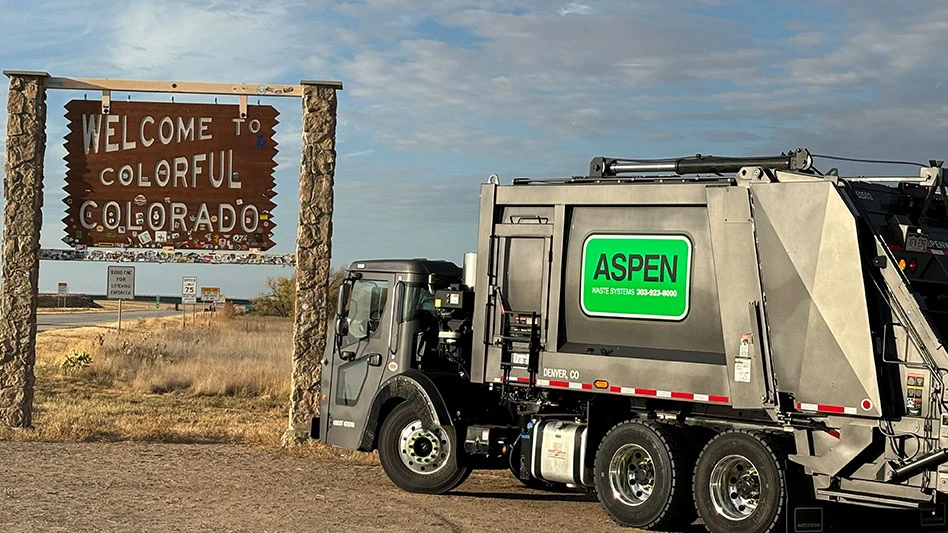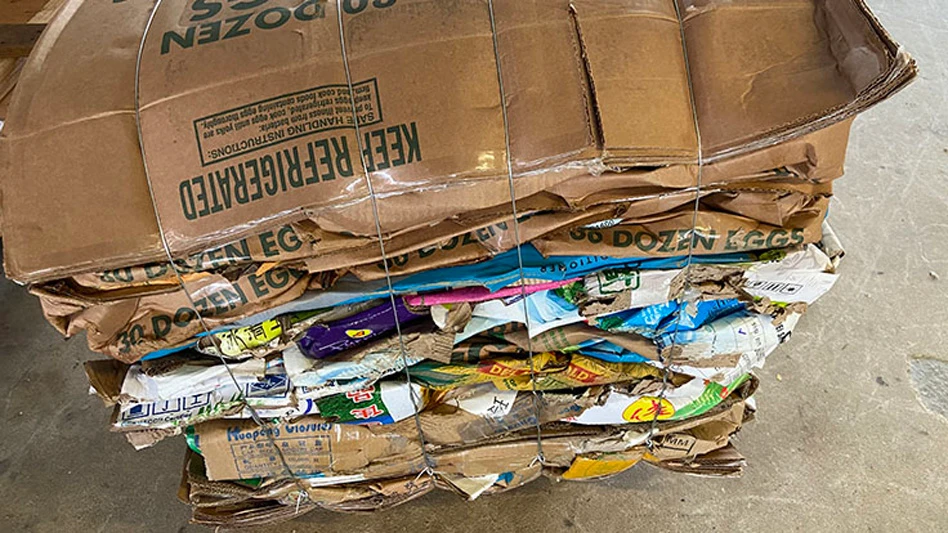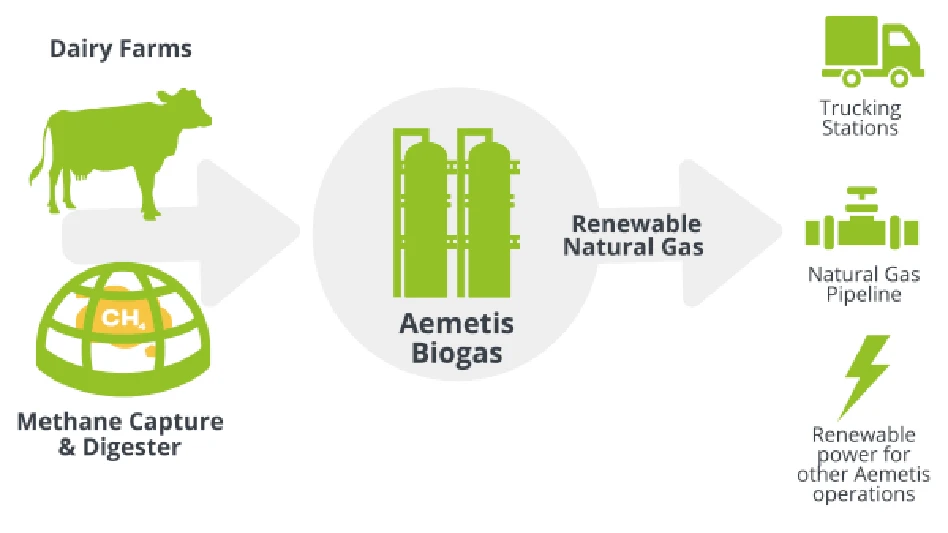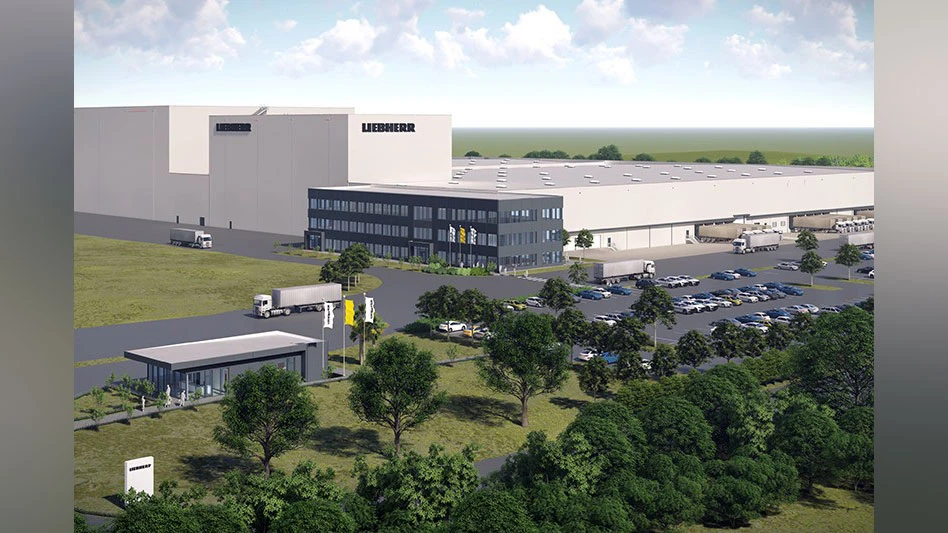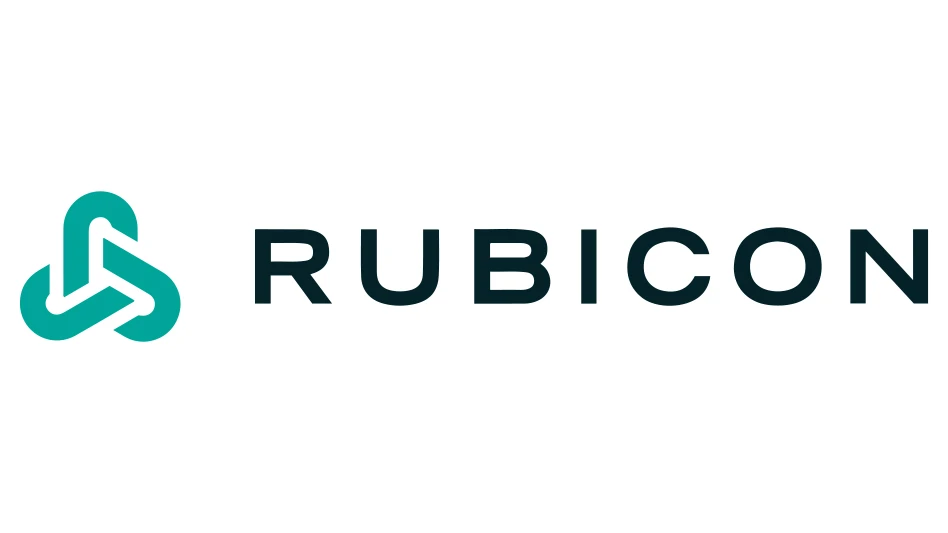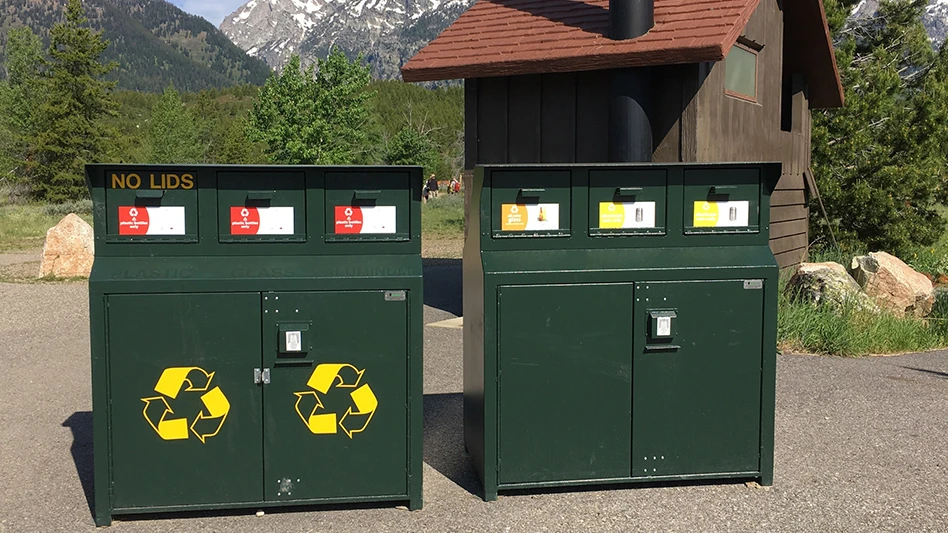
Photo courtesy of Subaru of America Inc. the National Parks Conservation Association
Camden, New Jersey-based Subaru of America Inc. says its collaboration with the National Parks Conservation Association (NPCA), which started in 2015, has helped divert 11,000 tons of varying materials from heading to landfills.
The automaker says in coordination with the National Park Service (NPS) and the National Park Foundation (NPF), Subaru and NPCA have helped the NPS divert 22 million pounds (11,000 tons) of materials from landfills through reduction, recycling, composting and educational initiatives while engaging park visitors to lessen their environmental footprint.
The collaborative Don't Feed the Landfills Initiative started with three pilot parks—Denali National Park and Preserve in Alaska, Grand Teton National Park in Wyoming and Yosemite National Park in California.
The automaker says it drew upon its zero-landfill experience to partner with the Washington-based nonprofit NPCA to launch the project about nine years ago. Along with the NPS and NPF, the two organizations engaged park concessionaires and community stakeholders to develop waste reduction solutions and help design infrastructure systems to ensure sustainable and resilient park operations.
“Together, we have reduced the amount of waste taken to landfills by half at Denali, Grand Teton and Yosemite, and we are proud to have provided a scalable waste reduction roadmap that supports the national parks' sustainability efforts for future generations,” says Alan Bethke, senior vice president at Subaru of America.
The leaders of the initiative say a network of nearly 60 park partners have supported the effort, and that the ripple effects of those efforts extend to nearby park communities.
“The challenging work that began at Denali, Grand Teton and Yosemite has changed how millions of visitors experience America's national parks and plays a critical role in keeping waste out of them,” Subaru says.
Aspects of the program have included sustainable food packaging, reusable containers and standardized bin labeling designed to increase recycling participation. Subaru also provided grant funding to the NPF to support engagement programs and operational and infrastructure improvements, including more than 1,000 bear-proof containers and nearly 30 water-filling stations.
“We were so proud to join forces with industry leader Subaru of America, the National Park Foundation and the National Park Service to address the significant waste challenges facing our national parks,” NPCA President and CEO Theresa Pierno says.
“Through our nearly 10-year partnership on the Don't Feed the Landfill initiative, we've helped keep millions of pounds of waste out of our parks and the landfills, made it easier and more clear to recycle and connected with millions of Americans about ways they can help lessen their footprint when they explore our parks. The systems and infrastructure we've put in place will benefit national parks, and all who visit them, for decades to come.”
The NPS manages over 80 million pounds (40,000 tons) of discarded materials each year.
Taking the lessons learned at the three pilot parks, Subaru and the NPCA have developed best management practices around waste diversion, reduction and management that will provide a roadmap for more national parks, including Big Bend in Texas and Zion in Utah, which Subaru says are already making significant strides to implement those practices while reducing operating costs.
Subaru says it will continue to provide funding to enhance and improve environmental stewardship efforts across the National Park System in 2024 and beyond.
The NPCA, founded in 1919, has more than 1.6 million members and supporters who work together to protect and preserve national parks for future generations.
Latest from Waste Today
- Capital Waste acquires Tennessee Waste Haulers
- Van Dyk partners with Reckelberg Environmental Technologies
- CRI submits comments to CalRecycle on CRV handling payments
- Reworld acquires EnviroVac Waste Transport
- Waga Energy partners on RNG project at France landfill
- Hawaiian county selects landfill site
- CAA submits final draft program plan in Oregon
- Washington city adds organics collection to waste service
